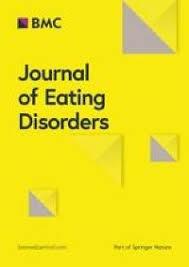
Extreme anorexia nervosa: medical findings, outcomes, and inferences from a retrospective cohort
Gibson D, Watters A, Cost J, Mascolo M, Mehler PS. Extreme anorexia nervosa: medical findings outcomes, and inferences from a retrospective cohort. J of Eating Disorders. 8:25-36, 2020.
Purpose and Background of the Severe Anorexia Nervosa Study
Extreme anorexia nervosa (AN) is defined as a BMI < 15 kg/m2 in those meeting DSM-V diagnostic criteria for AN. This study seeks to define the frequency of medical complications in this group of patients in order to help inform the care of individuals < 65% ideal body weight who seek treatment for their extreme eating disorders.
Methods Used in Study
Through retrospective chart review and computerized data collection, we obtained the baseline characteristics and medical findings of 281 adult patients, with AN restricting and binge-purge subtypes, admitted to the ACUTE unit for medical stabilization between May 2013 and August 2018.
Results of the Study
In this population, with a mean admitting BMI of 12.1 kg/m2 (range = 7.5–15.7), 56% admitted with bradycardia, 45% demonstrated increased liver function tests (LFTs) on admission, 64% admitted with leukopenia, 47% with anemia, and 20% presented with thrombocytopenia. During admission, 38% developed hypoglycemia, 35% developed refeeding hypophosphatemia, nearly 33% of patients developed edema, and low bone mineral density was diagnosed in almost 90% of the patients. Highly elevated LFTs (>3x upper limits of normal) predicted hypoglycemia, and low BMI predicted refeeding hypophosphatemia (p = .001).
Conclusion Regarding Severe Anorexia Nervosa Medical Complications and Outcomes
Although conclusions drawn from the findings presented in this descriptive study must be tempered by relevant clinical judgement, these findings showcase that patients with extreme AN are at significantly increased risk for many serious medical complications secondary to their state of malnutrition and also with initial refeeding.
Plain English Summary: Understanding the Results and Conclusion
Extreme anorexia nervosa (AN) is defined as a BMI < 15 kg/m2 in those meeting DSM-5 diagnostic criteria for AN. However, the frequency of medical complications specific to those meeting this greatest amount of weight loss is unknown. This retrospective study seeks to better define the frequency of medical complications in individuals < 65% ideal body weight admitting to an inpatient medical stabilization unit. We found that patients with extreme AN present with similar medical complications, although at a more frequent occurrence, to those at higher percent ideal body weights. Low bone mineral density is an almost universal finding in this population, with 45% of individuals presenting with osteopenia and 43% with osteoporosis. 35% of individuals developed hypophosphatemia and 38% developed hypoglycemia in this population, both more frequent in the restricting than binge-purge subtype of AN. Elevated liver function tests predict the development of hypoglycemia. Patients with extreme AN are at a significantly increased risk for many serious medical complications secondary to their state of malnutrition and also with initial refeeding.




